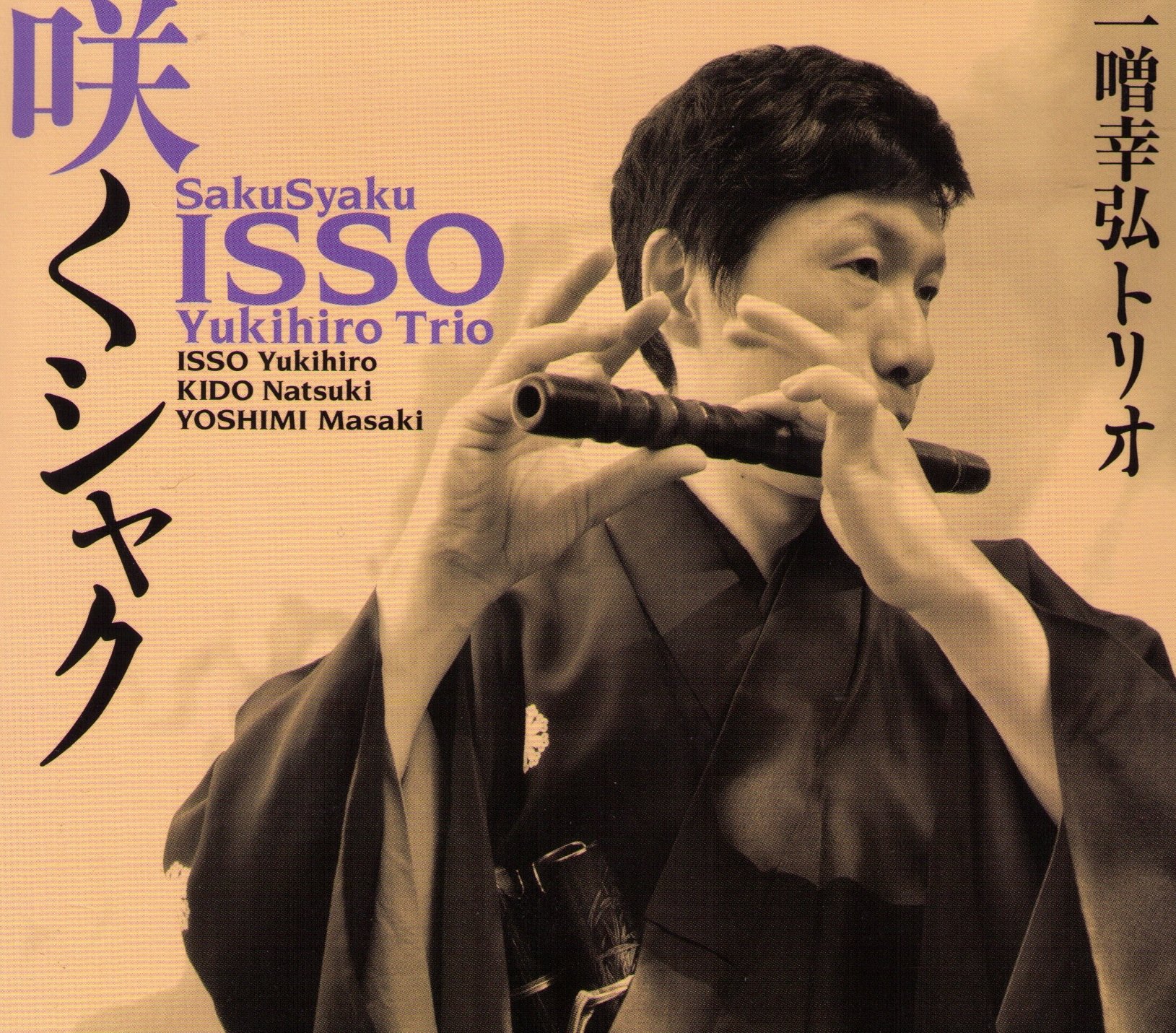Yukihiro Isso Trio “SakuSyaku” (tohyohyo music 2011)
一噌幸弘Yukihiro Isso—Noh-kan, dengakubue, recorder, gemshorn, whistle
鬼怒無月Natsuki Kido—guitars
吉見征樹Masaki Yoshimi—tabla, kanjira, matka
Dynamic, surprising and intense, Yukihiro Isso’s music is delightfully impossible to describe. It’s not that it’s just a mix of sounds, tones, melodies and harmonies from all over the world; it’s more that half the instruments on the recording are hard to identify! That makes for a fantastic, eclectic, and ear-pleasing recording. When Isso plays, the wind feels like it’s coming right out of the speakers.
Isso is a trained, regular performer of the ‘Noh-kan,’ the flute that gives Noh Theater its otherworldly intensity. He is more used to sitting ‘seiza’ on the stage of traditional Noh theaters than jamming at jazz clubs. However, he also plays in jazz clubs and records with different kinds of musicians far outside of the classical Japanese musical world with comfortable finesse. This wonderful CD is a tribute to how he improvises, composes and merges with jazz and world music. It is international-minded, cross-genre music at its best, but also most serious.
At times, the music has an Irish flavor, at others, especially with Kido’s guitar work, it feels Spanish or South American. With Yoshimi’s tabla thrumming energetically, Indian ragas come to mind. Isso plays a wide range of instruments here, all wind instruments, each with virtuoso zeal. Most of the songs have a deliciously sad feeling, a tone and technique taken from Noh, but hardly confined there.
The songs often sound like world acoustic music. However, Kido cranks up the electric guitar to match Isso’s fierce playing on wood-flute on “Ranjyo mejiha” and “Magotaro.” Electric guitar goes together with Noh flute much better than one might imagine. Kido, one of Japan’s most avant-garde guitarists (his own bands range from free jazz to hard rock to tango and chanson) is the perfect match for Isso’s explorations. Both the rock guitar and the Noh flute have a piercing intensity that accent each other and feel at home together.
Most of the songs are long, with plenty of soloing, which is excellent since Isso and Kido both have so much to say. But even while stretching out into circular exploring and melodic discovery, they maintain a virtuoso control of tone. That creates an open, spatial sound that easily shifts from east to west, hard-edged to soft, guitar amp to human breath. Yoshimi’s tabla and percussion sounds like light ocean waves at times, but at others, he lays down rhythms that drive the sound.
All the songs are composed by Isso, and unlike most world music, and even some jazz, the arrangements are varied and complex. Most maintain minor, modal chords drenched in melancholy, but they also rise to majestic ballad-like feelings that really carry you far from where you are, as on the stunningly rich, moving finale, for his mother, “Ten wo kakeru kaze.” This CD is very special and demands a follow-up.
Yukihiro Isso’s website is: http://www.tohyohyo.com
February 24, 2013

